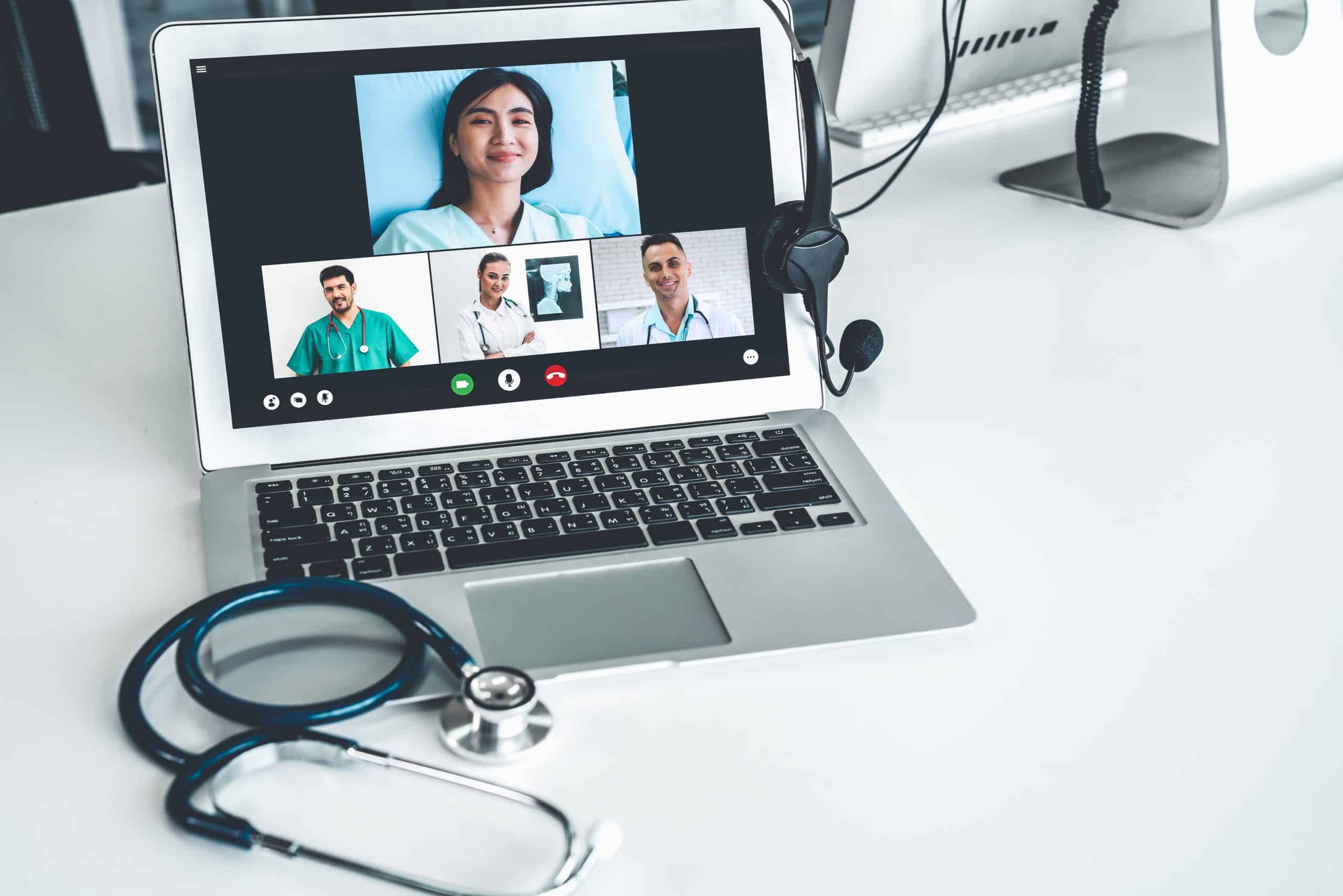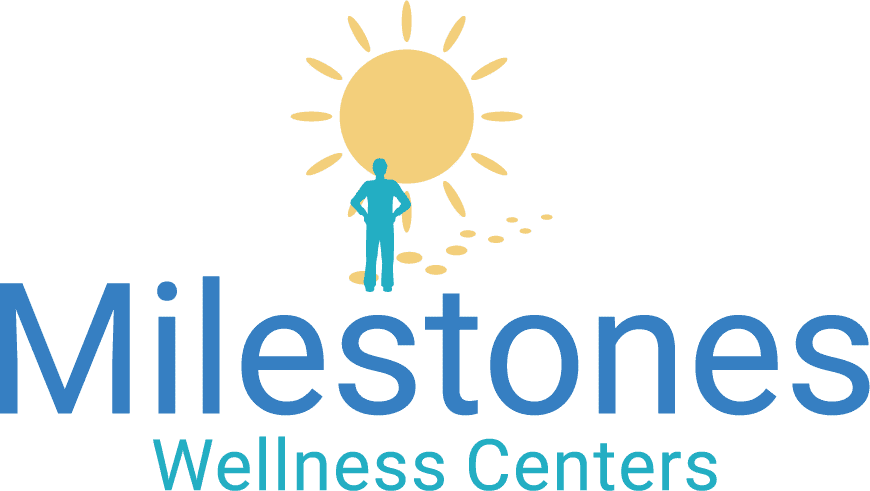
Telehealth FAQ
Technology connects us like never before.
Video conferences bring far-away friends and family together. Online shopping delivers goods directly to your doorstep. Now, even medical care can conveniently reach you at home through telehealth. Virtual doctor visits bridge geographical divides to make quality healthcare more accessible. Here are some helpful telehealth FAQs.
What Exactly is Telehealth?
Telehealth refers to healthcare services delivered through electronic communications. Patients connect with medical providers over live video feeds and secure data transfers instead of going into clinics. Remote care options range from routine check-ins to specialized treatment, such as addiction treatment. Options like these nurture improved continuity of care.
How Does a Telehealth Visit Work?
Conducting appointments online mirrors in-office experiences through digital interfaces. Patients see and talk to physicians in real-time using smartphone apps or webcams. Through digital mediums, doctors can assess symptoms, diagnose conditions, provide recommendations, and electronically transmit prescriptions to pharmacies. Some visits involve text-based messaging or transferring recorded health data.
Are Telehealth Services Effective?
Remote care proves just as effective as office visits for many common conditions. Established patient-provider relationships built through real-time video conferencing or phone conversations. This establishes and reinforces quality outcomes that previously were only completed by in-person appointments. Telehealth also expands access to leading specialists to manage chronic illnesses better. Overall convenience and cost savings appeal to those seeking reliable care solutions.
What Conditions Can Telehealth Treat?
Virtual visits address general health issues like flu symptoms, rashes, or minor infections requiring prescriptions. Telehealth also assists in managing long-term diseases through regular test result consultations and medication adjustments. Many providers incorporate teletherapy and online group counseling to support addiction treatment and mental wellness. Customized treatment plans determine appropriate telehealth usage.
What Are the Advantages of Telehealth Visits?
Convenience stands as the most significant advantage of telehealth. Appointment flexibility accommodates busy schedules. Also, remote care means no traveling to waiting room settings, which can potentially increase virus exposure. Due to less exposure to public spaces, home recovery is easier after televisits.
Overall, access expands options for getting specialized care or second opinions quickly. Comfort discussing sensitive topics privately from home facilitates better doctor-patient communication.
Do I Require Special Equipment for Telehealth Consultations?
A reliable internet connection is best for smooth video conferencing without lagging. The latest smartphone, tablet, or computer webcam capabilities ensure optimal screen resolution. Also, quality microphones can reduce audio disruptions as well. With secure connectivity established, no other special tools are necessary.
Are Telehealth Consultations Secure and Confidential?
Rigorous federal laws protecting sensitive patient information apply equally to telemedicine. Strict authentication protocols guarantee healthcare data security whereas encrypted communication channels maintain visit confidentiality. Established informed consent and record disclosure procedures further safeguard sensitive exchanges. Ongoing provider education emphasizes telehealth best practices regarding privacy standards.
Can prescriptions be issued after telehealth appointments?
Yes, e-prescribing integrated with televisit platforms enables providers to transmit electronically generated prescriptions to pharmacies directly. Standard prescription guidelines apply to medications ordered.
Which medical specialties offer telehealth treatment options?
Many fields like primary care, dermatology, mental health, counseling, cardiology, nutrition, and substance abuse treatment provide telemedicine access. Customized virtual care expands as more specialists adopt convenient technology.
Can telehealth cross state lines?
Yes, telehealth can cross state boundaries, as practiced at Milestones. However, the legality of interstate telemedicine varies by state and depends on whether the provider is licensed in the state where the service is being accessed.
Can telehealth improve access to addiction treatment services?
Absolutely. Telemedicine removes transportation barriers and stigma fears, improving addiction care engagement. Privacy also encourages openness. Additionally, customized video therapies effectively support recovery.
Telehealth modernizes healthcare delivery by virtually connecting patients and providers for convenient quality care. Safer ongoing treatment monitoring in expanded fields saves time and money when in-person visits are not essential. Simplified access stands are poised to revolutionize coordinated wellness.
If you have inquiries about our telehealth treatment, don’t hesitate to contact us today.
Online Opiate Addiction Treament
Online Suboxone Treatment
Suboxone is a prescription medication used to treat opiate use disorder. It is a combination of two drugs, buprenorphine and naloxone, and works by reducing cravings and withdrawal symptoms.
Learn MoreTelehealth Services
When an in-person visit is not necessary, a virtual visit is a great substitute. The telemedicine services at Milestones Wellness Centers provide patients with a variety of benefits.
Learn MoreOpioid Addiction Counseling Services
We provide a new way of thinking with Individual, Group, and Family counseling services throughout your journey of sobriety.
Learn More

